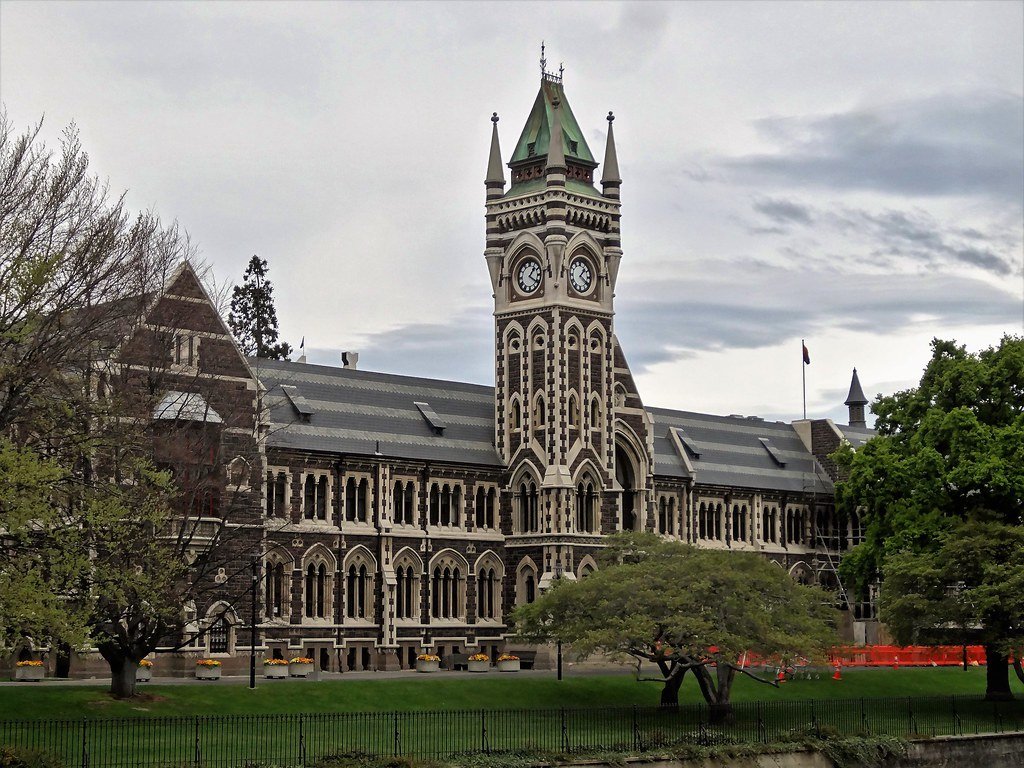New Zealand is quickly becoming a top choice for international students. If you’re thinking about studying there, here’s everything you need to know.

Everything You Need to Know About Studying in New Zealand
Even though it’s a small island nation with only a few universities, New Zealand is growing in popularity among students from around the world.
As a member of the Commonwealth, New Zealand has strong ties to the UK. English is the main language here, and it’s also the standard language of teaching in universities.
The country’s unique culture is deeply influenced by the indigenous Māori people. Many of New Zealand’s traditions, like the famous “haka” performed before rugby matches, come from Māori heritage.
You might recognize New Zealand as the filming location for The Lord of the Rings—thanks to its breathtaking landscapes. But it’s not just about nature; cities like Auckland, Christchurch, and Wellington are vibrant places to live and study.
New Zealand has just eight universities:
- University of Auckland
- University of Otago
- Auckland University of Technology
- University of Canterbury
- Victoria University of Wellington
- University of Waikato
- Lincoln University
- Massey University
All eight rank in the Times Higher Education World University Rankings, with the University of Auckland in the top 20 for Impact Rankings. The country is known for excellent postgraduate opportunities and high-quality education.
If you’re considering studying in New Zealand, here’s a full breakdown of what you need to know.
How to Apply to Study in New Zealand
Unlike some countries, New Zealand doesn’t have a central application system—you apply directly to your chosen university, either online or by post.
The academic year starts in late February or early March and ends in November. Most universities follow a two-semester system:
- Semester 1 begins in February/March.
- Semester 2 begins in July.
Application deadlines vary:
- For Semester 1, deadlines usually fall between October and December.
- For Semester 2, deadlines are typically between March and early July.
Always check your university’s website for exact dates.
Do I Need to Take an English Test?
While there’s no language requirement for the student visa, most universities will ask for proof of English proficiency before admitting you.
Commonly accepted tests include:
- IELTS Academic
- TOEFL iBT
- PTE Academic
- Duolingo English Test (DET)
- IELTS Indicator (for students who can’t take IELTS in person)
Test costs range from £40 to £200. Score requirements vary by university and program, so check directly with your chosen institution.
How Much Does Studying in New Zealand Cost?
As an international student, your main expenses will be tuition, accommodation, and living costs.
Tuition Fees:
- Undergraduate: NZ$25,000–$45,000 per year (higher for medicine/veterinary science).
- Postgraduate: $20,000–$37,000 (higher for specialized fields).
- PhD: Only $6,500–$9,000 per year (same for domestic and international students).
Some universities charge additional fees (e.g., University of Auckland’s student services fee: $1,065.60/year).
Accommodation Costs:
- Student halls: ~NZ$200/week
- Shared flat: ~NZ$120/week
- Private flat: ~NZ$180/week
Other Living Expenses:
- Phone: ~NZ$20/month
- Internet: ~NZ$70/month (can be split)
- Utilities (gas, electricity, water): ~NZ$100/month
- Health insurance (required for visa): ~NZ$590/year (e.g., StudentSafe)
Entertainment & Socializing:
- Meal out: ~NZ$20
- Beer: ~NZ$9
- Cinema ticket: ~NZ$15
Scholarships for International Students
New Zealand offers scholarships based on merit, financial need, or country of origin. Some top options:
- New Zealand Manaaki Scholarships – Full government funding.
- University of Canterbury International First Year Scholarship – For high-achieving undergrads.
- University of Auckland International Student Excellence Scholarship – NZ$10,000 award.
- Victoria Master’s Scholarships – NZ$15,000 stipend + domestic fees for research master’s.
Student Visa Process
Most international students need a Fee-Paying Student Visa (cost: NZ$375). Required documents include:
- University acceptance letter
- Proof of funds (tuition + NZ$15,000/year for living costs)
- Medical/police certificates (if required)
Processing takes about 8 weeks, so apply soon after receiving your offer.
Can I Work While Studying?
- Undergraduates: Up to 20 hours/week during term, full-time in holidays.
- Master’s/PhD students: No work restrictions.
- Minimum wage: NZ$23.15/hour.
Always check your visa conditions before working.
After Graduation: Work & Stay Options
New Zealand has strong job prospects, with low underemployment rates. Graduates can apply for a Post-Study Work Visa, allowing them to stay and work for up to 3 years.
Key industries include:
- Agriculture (largest sector)
- Service industry
- International trade
- Green energy & tech
If you want to continue in academia, PhD fees are affordable (same as domestic students). You can also check academic job openings on Times Higher Education.

